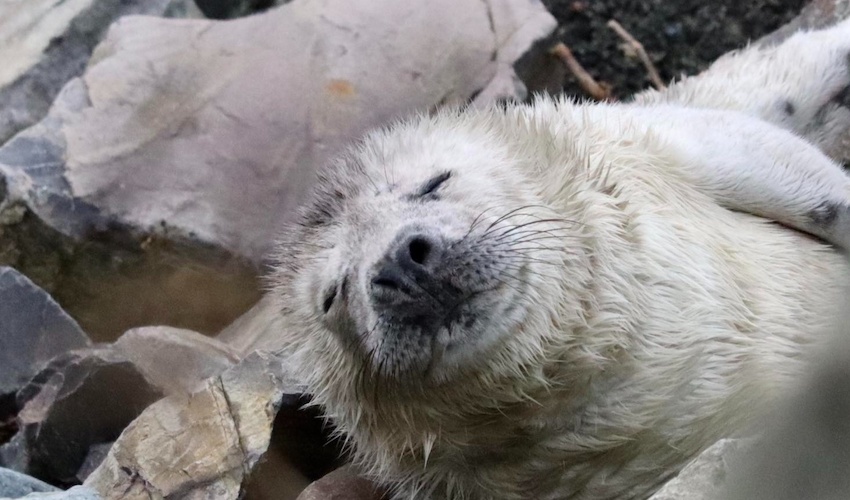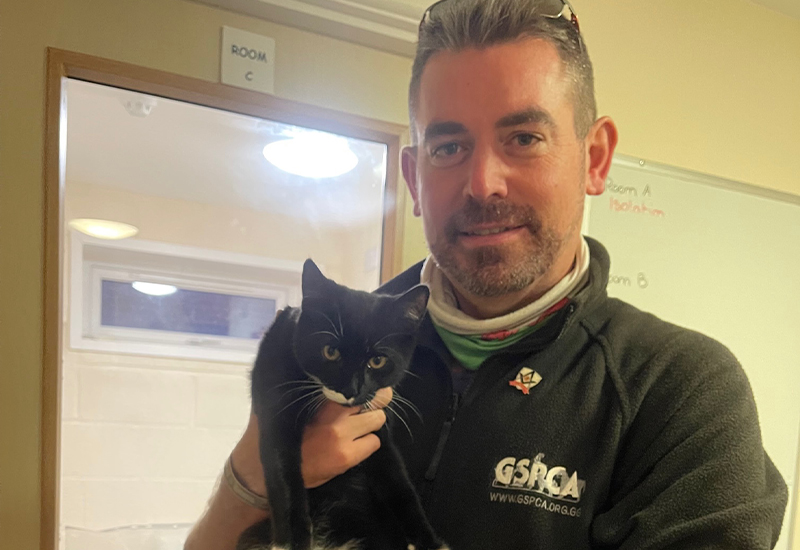

As 'seal season' approaches, the GSPCA is offering advice to anyone who may spot a pup on our coastlines to encourage everyone to leave healthy animals alone, so help can be focused on those who really need it.
Steve Byrne GSPCA Manager said he is expecting some seals to need the charity's help again this year.
But he said many are perfectly healthy and can cope alone.
“We once again start to see seal pups being born along our shores in the Channel islands and the GSPCA want to ensure they get the best start in life,” he said.
“Last year we had the busiest season we have ever seen in our 151 years.
“It is so important when around our coast not to disturb seal pups and especially their mums as many casualties are due to mums being driven off beaches and the pups left to fend for themselves too early.”
Mr Byrne said the best advice to offer anyone who comes across a seal pup that looks fit and healthy, and is showing no signs of distress, is to leave it alone and monitor it from a distance for 24-hours.

Pictured: A healthy looking seal.
He explained that too many seal pups get taken into captivity because people think they have been abandoned but it is only if the mother does not return within 24 hours that he would advise you call the GSPCA for help on 257261.
He said a healthy seal pup looks like "a big, stuffed maggot without a neck" - however, a thin pup "looks sleek (but not bony) and has a visible neck, like a healthy dog".
He also urges people not to touch any seals as they can give a nasty bite.
People should also not allow dogs or other animals to harass a seal, as if it becomes scared it may go back into the water and could then be washed out to sea by strong currents and be separated from its mother and lost.
Mr Byrne said anyone who finds a sick, thin, or injured seal pup should always call the GSPCA's 24-hour cruelty and advice line.
When reporting an injured, sick or abandoned seal they need information about its location, position on the beach and the state of the tide, how long the sea pup has been observed for, and whether its mother has been seen and if the pup has been disturbed.
Any wounds or obvious signs of illness, its approximate length, colour, and condition should also be noted.

Pictured: Steve Byrne.
Over recent years the number of seal pups cared for by the GSPCA has increased as members of the public have assisted in raising the alarm when help is needed.
However, the seals' recuperation facilities will be more limited over this coming winter as wider redevelopment works take place at the animal shelter in St Andrews.
“This year we have the added challenge that are seal facilities are soon to be demolished to make room for the new Wildlife Hospital we are wanting to build and still in need of support for," explained Mr Byrne.
“In the interim we will triage any pups at the Shelter and have been in touch with friends at the RSPCA in the UK who will hopefully help in their Wildlife Centres.
“If you do see a seal pup you are concerned about you can see our advice online on what to do, but the easiest is just call our 24/7 emergency number on 257261.”
Comments
Comments on this story express the views of the commentator only, not Bailiwick Publishing. We are unable to guarantee the accuracy of any of those comments.